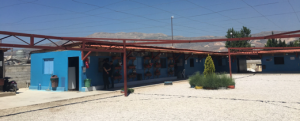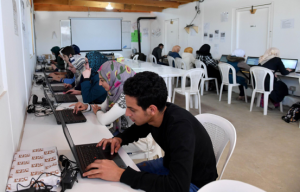“Study abroad scholarships can be an absolute boon, providing students with the much needed financial resources”
What do Indian investor and philanthropist Ratan Tata, journalist and television news anchor Arnab Goswami, politician Shashi Tharoor and actress Ameesha Patel have in common? Well, they all received their higher education in a university abroad!
Ever since the colonial era, Indians have been travelling abroad for education. Apart from the obvious boost to one’s career and academics that an education abroad can provide, the charm of experiencing a foreign culture can also be quite a factor when it comes to attracting Indian students to foreign shores.
But for the most part, this is limited to those with considerable financial resources available to them, and consequently, accessible only to the privileged. There’s one exception to this rule – an alternate method for students to access quality education for close to free – study abroad scholarships.
International scholarships are those scholarship opportunities that are open for students studying in a country apart from their own. For international students, study abroad scholarships can be an absolute boon, providing them with the needed financial resources to pursue their higher education from prestigious universities abroad.
A scholarship to study abroad can cover a meritorious student’s expenses including tuition, flight, visa, accommodation and living expenses.
“Unlike an education loan or study loan, the aid received through a scholarship doesn’t need to be paid back as well, making them the perfect solution for financially constrained meritorious students”
Of course, with many applicants for the same positions, the competition to win scholarships is quite high. Many students are further hindered by the lack of information about available scholarships. Yet, there is no dearth of available scholarship opportunities for Indian students to study abroad.
Study abroad scholarships can be discovered by browsing the scholarship portal of your state or the national scholarship portal, through a web search by keywords, through the student counsellor at your school or college, and on scholarship websites or apps.
One resource to find information for study abroad scholarships for Indian students is Buddy4Study. Started as a website in 2011, Buddy4Study is also available as an android app on Google Play Store. The portal contains complete information on international scholarships for Indian students.
Here are few of the top study abroad scholarships:
1.Stanford Reliance Dhirubhai Fellowship
This scholarship is offered by Reliance Industries Ltd. in the name of their founder, Dhirubhai Ambani. The scholarship is offered exclusively to Indian students who wish to pursue an MBA from Stanford University in the United States of America. To qualify for the scholarship, the student must be admitted to Stanford Business School. Stanford’s Business School is one of the most prestigious schools in the world, with its MBA Degree frequently ranking among the very best in the world. Reliance CEO Mukesh Ambani, as well as his daughter, Isha Ambani, are among the alumni of the Stanford Business School.
2.Narotam Sekhsaria Scholarship
This scholarship is for graduate students who are looking to pursue a postgraduate degree from a prestigious institution – whether in India or abroad – in any of the listed disciplines. The disciplines include a vast umbrella of courses falling under Pure Sciences, Applied Sciences, Social Sciences and Humanities, Law, Architecture and Management.
The scholarship provides financial aid up to INR 20 Lakh to each selected scholar. The applications for this scholarship are open between the months of January to March each year.
3.Lady Meherbai D Tata Education Scholarship
This scholarship is provided by the Tata Education Trust, one of India’s oldest, philanthropic organisations, and is exclusively for Indian women graduates. The scholarship provides financial aid to women graduates from prestigious institutions in India to pursue their postgraduate studies abroad in either the US, the UK, or Europe.
The candidate must also possess at least 2 years of work experience in the respective field which are covered under the program, including social work, social sciences, education, gender studies, child health, public health, rural development work, communication of development, etc.
4.Chinese Government Scholarships
These scholarships are offered on behalf of the Government of China by the Ministry of Human Resource Development as per the joint pacts between the countries in the sector of education. There are multiple full and partial scholarships available for Undergraduate, Masters, Doctoral, General Scholar and Senior Scholar programs.
While the full scholarship covers the entire tuition fee, accommodation, monthly stipend, and medical insurance expenses, the partial scholarship would only cover one or some items of the full scholarship.


